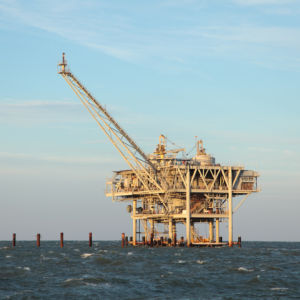Critics of Interior Secretary Ryan Zinke’s proposed five-year offshore leasing plan, which would open most of the nation’s offshore acreage to potential energy development, are leaning on two messages to defend their opposition to increased offshore access. First, they insist we don’t need additional offshore oil and natural gas production. And second, they suggest offshore development poses too much of a risk. They couldn’t be more wrong.
The offshore industry has a proven record of safety and has become even more so after the 2010 Deepwater Horizon accident. While the shale revolution and advances in on-shore energy development have claimed the spotlight over the past half-decade, the offshore industry has quietly continued to produce much of the fuel that’s so critical to both our energy security and economic health. Quietly being the key word.
Even though the offshore industry in the Gulf of Mexico produced 1.66 million barrels of oil and nearly 3 billion cubic feet of natural gas per day last year, most Americans didn’t hear about or give a thought to our offshore operators. That’s not a bad thing. Smooth, safe and quiet operations are the industry’s goal.
Over the last several years, the offshore industry has redoubled its commitment to safety. For example, the industry has created or strengthened 100 exploration and production standards since 2010 — covering everything from well design and blowout prevention to safety and environmental management. And these standards carry significant weight. The federal Bureau of Safety and Environmental Enforcement references 96 of them in its offshore regulations.
In 2011, the industry came together to launch the Center for Offshore Safety. The COS brings together the best in offshore operations to help share what’s working so that a rising tide in offshore safety can lift all boats. The COS is a vehicle for collaboration that simply didn’t exist in the past and it has been critical in establishing and improving training and safety protocols as well as industry safeguards.
The industry also has created offshore well intervention and a containment group that can provide technology, expertise and quick-response capabilities in the event a well needs to be capped thousands of feet below the surface. While we hope these groups are never needed, having this capability shouldn’t be overlooked.
And while industry has done much to improve safety, regulations have been tightened, and continue to be tightened, as well. For example, in March the Bureau of Safety and Environmental Enforcement announced the implementation of a new Risk-Based Inspection Program aimed at focusing regulatory resources on those operators and facilities needing the most attention. Smart, focused regulation will always play a key role in ensuring safe offshore operations.
The offshore energy safety record speaks for itself. But do we need more oil and natural gas production? Absolutely.
Just a few years ago the United States was experiencing growing dependence on overseas energy. While the shale revolution has since made the United States the world’s largest combined producer of oil and natural gas, today’s abundance could become tomorrow’s scarcity if it is taken for granted.
Oil and natural gas remain irreplaceable to our economic well-being. Oil provides more than 90 percent of the energy we use for transportation. And natural gas heats half of our homes, is now our leading fuel for electricity generation and is a key feedstock to heavy industry. These fuels are essential today and will be for the foreseeable future.
Any responsible energy policy looks ahead. Now is the time to expand exploration offshore. While new offshore discoveries are happening off the coasts of Africa and South America, many of them made by American companies, we have had a self-imposed embargo on much of the offshore. Up until Secretary Zinke’s proposal, 94 percent of federal offshore acreage was off-limits to development.
Offshore exploration and production are safe and necessary. It’s past time for logic, reason and facts to replace tired or simply inaccurate talking points.

